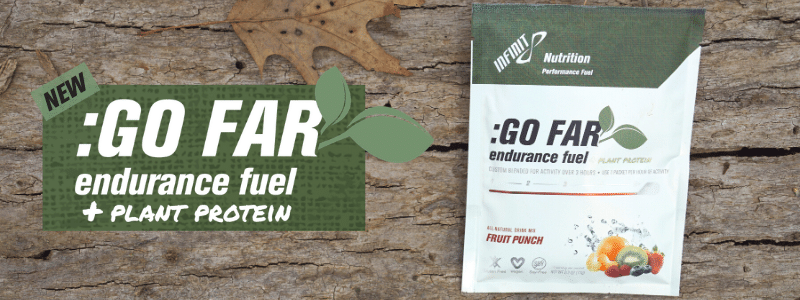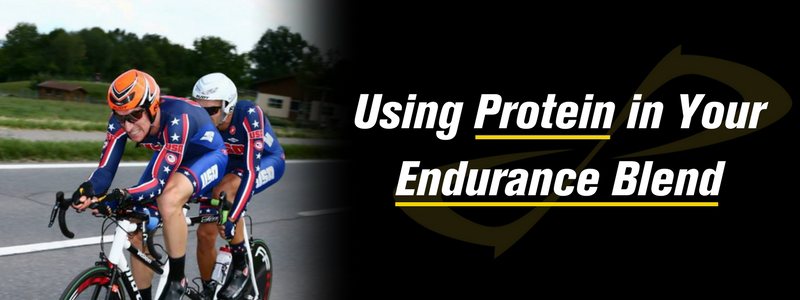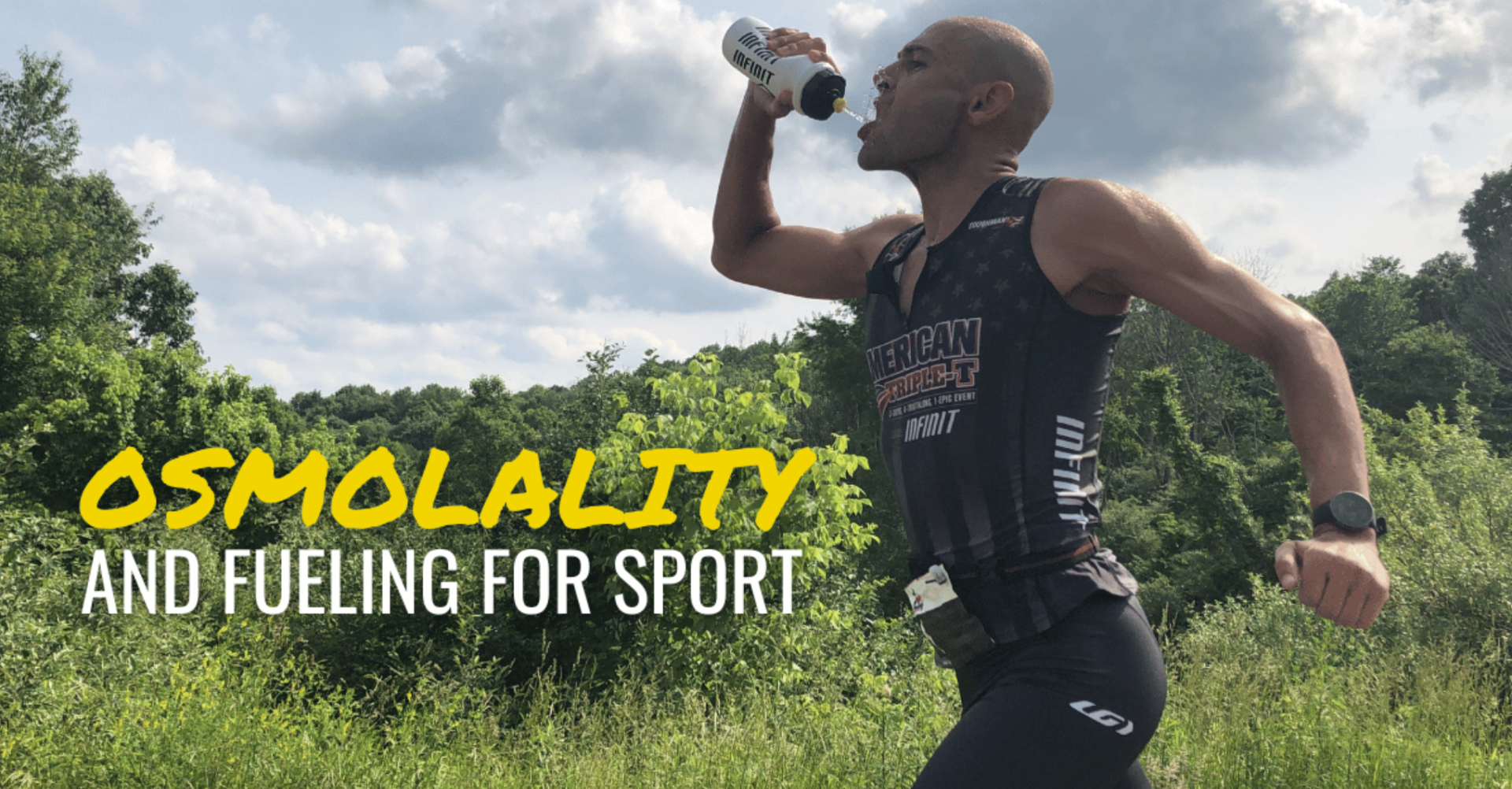Can Plant-Based Diets Support Peak Performance in Endurance Athletes?
- 24 Apr 2021

Benefits and Considerations for the Plant-Based Athlete
More than a passing trend…plant-based diets have gone mainstream.
These days it seems like every time I turn around I meet someone else who is “going vegan”. I know this because it’s almost the first thing they tell me about themselves. From teenagers and 20-somethings who are attracted by the sustainability benefits of plant-based eating to the 50 year old walking heart-attack-waiting-to-happen who’s finally scared enough to make a few changes, plant-based diets have been repeatedly shown to offer a wide range of health benefits for everyone, even with just small changes in eating habits.

In fact, a recent study found that, over the last 15 years, the number of Americans who report following a plant-based diet has increased from 290,000 in 2004 to a whopping 9.7 million in 2020.1 At the same time, only 3% of those 9.7 million plant-foodies actually label themselves as “vegetarian” or “vegan”. 1
So what do we mean by “plant-based diet” then? A plant-based diet refers to an eating pattern with an overall reduction in the consumption of animal products (like meat, eggs, and dairy) along with an increased consumption of plant-based foods (fruits, vegetables, and grains). This type of dietary pattern can manifest in several different ways: 1,2
- Flexitarian – Emphasis on plant-based foods but including animal products in moderation
- Pescatarian – Plant-based foods with fish, dairy, and eggs
- Lacto- or Lacto-ovo-vegetarian – Plant-based foods with dairy or dairy and eggs
- Vegan – Plant-based foods only with no animal products

The Hard Core Health Benefits of Plants
Following a plant-based diet has long been associated with a reduced risk for a variety of chronic diseases including cardiovascular disease, type 2 diabetes, and certain types of cancer. These health benefits are due to the fact that plants are both low in saturated fat and cholesterol, while also being high in fiber, vitamins, and minerals (including antioxidants).3
The research supporting plant-based eating is undeniable — From long-term observational cohort studies to randomized controlled trials, the evidence continues to mount illustrating the benefits of a more plant-based eating pattern, even with just modest substitutions of plants over animal products. 3-5
Oddly enough, middle aged and older endurance athletes have been shown to have a higher incidence of atherosclerosis, or plaque build-up, and heart damage than sedentary people.6 At the very least, this can compromise performance, and worst case, well…let’s just say split times won’t matter much at that point.

But Do Plants Offer a Performance Benefit, Too?
Specific studies examining the tangible performance benefits of these known physiological effects of consuming a plant-based diet are limited, but the health benefits of a diet rich in nutritious whole plant-based foods can translate into a primed and nourished performance machine.
The cardioprotective effects of a low-fat plant-based diet extends to athletic performance, helping to reverse plaque build-up and improve blood flow.6 Why should you care as an endurance athlete? Because improved blood flow increases the rate of oxygenation, nutrient delivery, and waste removal for your hard-working muscles without over-taxing your heart, which leads to improved endurance and performance alongside better overall health.6
Plant-based diets are also high in carbohydrates, the #1 fuel source for athletes, which then contribute to maximizing glycogen storage. 6 Glycogen is glucose stored in our muscles and liver that is used as a sustained energy source during exercise. When it’s gone, you “hit the wall”, so maximizing glycogen storage is key for endurance athletes in particular.
Diets that are primarily plant-based tend to be rich in fiber, which can help to improve blood glucose control.6 Anyone who has “bonked” or gotten low blood sugar during a workout knows how important that can be.
Fruits, vegetables, and whole grains are rich sources of antioxidants like vitamins C and E, beta carotene, and polyphenols. These nutrients can help reduce exercise-induced inflammation and oxidative damage resulting from heavy training. 6-7 This could mean quicker recovery and less soreness.

More Than Just “Hold the Meat”
But not so fast…not all plant-based eating patterns are created equal. After all, Doritos and Oreos are vegan, aren’t they?
A few of those same long-term observational cohort studies we talked about before also assessed the relationships between diet quality measures and coronary heart disease (CHD) incidence. Higher adherence to a healthy plant-based dietary pattern (fruits, veggies, and whole grains) was associated with less CHD while greater adherence to an unhealthy plant-based dietary pattern (refined grains, starchy vegetables, sugar sweetened foods and beverages) ranked up there with an animal-based diet being associated with more frequent CHD occurrence.5
Bottom line…moving toward a healthful whole food, plant-based diet has a bigger impact on health outcomes versus just choosing to not eat meat. One caveat here…those that follow a healthful whole food, plant-based diet also tend to make other healthier choices, like not smoking and exercising regularly, which also positively impacts health outcomes.2

What About Protein? Does Plant Protein Really Meet an Athlete’s Needs?
Not all proteins are created equal either.
You may have heard the term “complete protein” before. ALL animal products are considered “complete” because they contain a sufficient amount of all nine essential amino acids that the human body can’t make itself.
(Quick biochem refresher…ingested protein is metabolized into individual amino acids, which are then recombined to form different endogenous proteins that participate in pretty much every bodily function. Protein synthesis stops if even just one essential amino acid is unavailable, thereby limiting the body’s functional capability.)
By and large, plant protein is labeled “incomplete.” Each plant contains a sufficient amount of certain essential amino acids, but not enough of all of them to meet our needs from one individual plant. You might say the amino acid profile is “less optimized” in plants than animals.2
Notable exceptions are soy-based products (tofu, tempeh, edamame) and quinoa, which ARE characterized as complete.

Fortunately, you can still get everything you need by consuming complementary protein sources over the course of a day, like legumes and grains or seeds. A great example is INFINT’s Vegan Blend™, which is a 50/50 mix of faba bean and organic brown rice proteins, making it a complete protein source to keep you going strong, whether as part of a custom hydration or recovery blend or in our new :GO FAR + Plant Protein.
People who eat an omnivorous diet generally get sufficient protein, if not more than they really need. But studies have consistently shown that those who consume a more plant-based diet tend to consume significantly less protein overall, even dipping toward protein inadequacy. 2
Additionally, plant-based proteins are somewhat less bioavailable than animal-based proteins (meaning that, while the protein is there, our human digestion can’t fully release it from plants like cow’s can). A recent study measured the digestibility of essential amino acids from plants compared to animal foods among endurance athletes. The study found that omnivores both ingested AND digested more protein than plant-based athletes, resulting in 43% more available protein. As a result, omnivores easily met the recommended 1.2-1.4 g/kg/d for athletes, while plant-based athletes fell short at 1.1 g/kg/d.8
To make up for the natural biochemical limitations of plant protein, plant-based athletes need to consume a little bit higher amount of plant proteins overall to meet their needs, on the order of +10%.

At the end of the day, well-planned, whole food, plant-based diets pretty convincingly take the lead for improving overall health outcomes and reducing chronic disease risk. But how does that translate to improved athletic performance? The answer…the jury’s still out. The literature is peppered with small, cross-sectional studies which are not the best source of data. The research, at best, points to a slight benefit in VO2max9 or endurance time to exhaustion10 for plant-based female endurance athletes.9 At worst, the data indicates no “detrimental effects” of consuming a plant-based diet compared to an omnivorous diet in VO2max, peak torque9, speed11, or endurance10 in general.
Bottom line…there’s only upside potential from adding more plants to your diet. Try our Vegan Blend™ in your favorite INFINIT blend today!
About the Author
Jennifer Searles was a 2020-2021 non-traditional Dietetic student intern with a master's degree in engineering. Jen spent time at INFINIT while completing her final year at the University of Cincinnati in preparation to become a Registered Dietitian Nutritionist and start a second career after 17 years working with P&G.
INFINIT Nutrition is proud to partner with the University of Cincinnati's Coordinated Program in Dietetics (CPD) to provide our next generation of nutrition professionals an opportunity to spend time with the INFINIT Team and gain real-life experience of working at a sports nutrition company.
Resources
- Danziger L. The Number of Americans Eating Plant-Based Has Passed 9.7 Million. The Beet. https://thebeet.com/the-number-of-americans-eating-plant-based-has-passed-9-7-million-survey-finds/. Published March 9, 2020. Accessed March 23, 2021.
- Mariotti F, Gardner CD. Dietary Protein and Amino Acids in Vegetarian Diets-A Review. Nutrients. 2019;11:2661.
- Paivarinta E, Itkonen ST, Pellinen T, Lehtovirta M, Erkkola M, Pajari A. Replacing Animal-Based Proteins with Plant-Based Proteins Changes the Composition of a Whole Nordic Diet-A Randomised Clinical Trial in Healthy Finnish Adults. Nutrients. 2020;12:943.
- Guasch-Ferré M, Satija A, Blondin SA, et al. Meta-Analysis of Randomized Controlled Trials of Red Meat Consumption in Comparison With Various Comparison Diets on Cardiovascular Risk Factors. Circulation. 2019;139(15):1828-1845. doi:10.1161/circulationaha.118.035225
- Satija A, Bhupathiraju SN, Spiegelman D, et al. Healthful and Unhealthful Plant-Based Diets and the Risk of Coronary Heart Disease in U.S. Adults. Journal of the American College of Cardiology. 2017;70:411-422.
- Barnard ND, Goldman DM, Loomis JF, et al. Plant-based diets for cardiovascular safety and performance in endurance sports. Nutrients. 2019;11:130.
- Craddock JC, Neale EP, Peoples GE, Probst YC. Plant‐based eating patterns and endurance performance: A focus on inflammation, oxidative stress and immune responses. Nutrition bulletin. 2020;45:123-132.
- Ciuris C, Lynch HM, Wharton C, Johnston CS. A Comparison of Dietary Protein Digestibility, Based on DIAAS Scoring, in Vegetarian and Non-Vegetarian Athletes. Nutrients. 2019;11:3016.
- Lynch HM, Wharton CM, Johnston CS. Cardiorespiratory fitness and peak torque differences between vegetarian and omnivore endurance athletes: A cross-sectional study. Nutrients. 2016;8:726.
- Boutros GH, Landry-Duval M, Garzon M, Karelis AD. Is a vegan diet detrimental to endurance and muscle strength? European journal of clinical nutrition. 2020;74:1550-1555.
- Craddock JC, Probst YC, Peoples GE. Vegetarian and omnivorous nutrition-comparing physical performance. International journal of sport nutrition and exercise metabolism. 2016;26:212-220.






